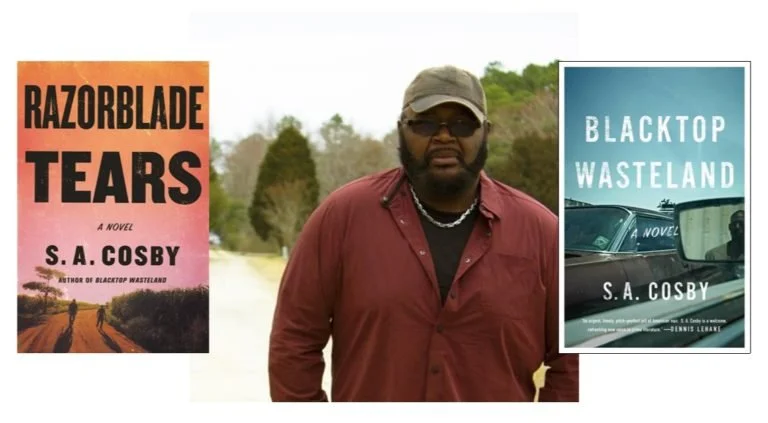We don’t know much about Cormac McCarthy. The 89 year-old is a recluse, residing near Santa Fe. His role in the culture relative to his presence in it are in inverse proportion. A while back, a Twitter account popped up purporting to be McCarthy. His publisher quickly explained it was fake because McCarthy doesn’t own a computer.
We also don’t know much about McCarthy’s politics but the hints we get indicate he’s a Western traditionalist conservative. Sometimes his characters give us a glimpse of his worldview. Both Ed Tom Bell and the El Paso Sheriff from No Country for Old Men seem to be avatars for McCarthy, bemoaning the changing culture and the death of the world they knew and had once mastered.
McCarthy writes his novels and correspondence on a typewriter from 1958 and I swear I read somewhere that he built his house by hand. The dude is just different. McCarthy published Blood Meridian in 1985. He had been writing for at least twenty years by then but the grump didn’t do his first TV interview until Oprah made The Road one of her book club selections in 2007.
Blood Meridian is arguably his most acclaimed work. It’s a laughably simple story. A group of marauding American mercenaries ride through the West killing, robbing, scalping, and assaulting Comanche and Apache Natives at the behest of the Mexican government. But their spree begins to include killing everyone in sight. They’re called the Glanton Gang, but their true leader is an unaging, grotesque, deeply philosophical, sadist, named the “the Judge,” who spends much of the book naked. He’s like Baron Harkonnen but in 1850. If you’re a remotely normal person, at this point you likely have some questions.
The plot of the book is limited but what’s notable is the prose. McCarthy writes with a compelling locomotion despite the frequent deployment of slurs by his characters, constantly referring to natives as “savages,” and anyone darker than an albino as the n-word. This is a passage I dog-eared:
What is true of one man, said the judge, is true of many. The people who once lived here are called the Anasazi. The old ones. They quit these parts, routed by drought or disease or by wandering bands of marauders, quit these parts ages since and of them there is no memory. They are rumors and ghosts in this land and they are much revered. The tools, the art, the building — these things stand in judgement on the latter races. Yet there is nothing for them to grapple with. The old ones are gone like phantoms and the savages wander these canyons to the sound of an ancient laughter. In their crude huts they crouch in darkness and listen to the fear seeping out of the rock. All progressions from a higher to a lower order are marked by ruins and mystery and a residue of nameless rage. So. Here are the dead fathers. Their spirit is entombed in the stone. It lies upon the land with the same weight and the same ubiquity. For whoever makes a shelter of reeds and hides has joined his spirit to the common destiny of creatures and he will subside back into the primal mud with scarcely a cry. But who builds in stone seeks to alter the structure of the universe and so it was with these masons however primitive their works may seem to us.
None spoke. The judge sat half naked and sweating for all the night was cool.
As I said, the story is not remarkable but the writing is. At times, I found myself asking why am I reading this, then coming across a passage like that and saying to myself “oh yeah, that’s why.”
McCarthy released a new book last year called The Passenger. I tried it but didn’t finish it. After reading Blood Meridian, I plan to return to it.
Y’all Gotta Read this Man SA Cosby
SA Cosby is writing the best southern noir books in the game right now
As I’ve discussed prior, I am on a spree of crime and southern noir novels. It’s the genre of Elmore Leonard, sometimes McCarthy, and as of late the giant of the genre, SA Cosby. His forthcoming book is called All Sinners Bleed. It’s his fourth novel; the first three: Razorblade Tears, Blacktop Wasteland, and My Darkest Prayer are all highly recommended. He writes with an authentic Black voice in a genre often rife with preposterous Black characters and clownish dialogue.
The Obama Administration’s inability to deliver meaningful policy on matters of racial justice showed us the limits of representation as a force in politics. But representation and cultural competence in the subjects you’re writing are a must in works of fiction. I’ve read far too many books and watched too many series with poorly written Black characters. They ruin otherwise wonderful novels and make me turn off shows I otherwise enjoyed. There’s no universal Black experience but inauthenticity and a writers’ room that looks like Augsuta National leap off the page. The “Magical Negro” and the “Black bestfried as moral compass” are among the most tired tropes but there are legions of others.
I pre-ordered All Sinners Bleed for its June release. I don’t think I’ve ever pre-ordered a book in my whole Blackity-black life but his writing is that good.
I also mention Cosby here because his name came up in a recent episode of the podcast. I was chatting with Eil Cranor, an Arkansas based writer who also writes in the genre. I asked him who he reads or whose work he admires. The first name he mentioned was Cosby and we shared our mutual love for his work. Cranor is no slouch himself. His debut novel Don’t Know Tough is a slow burn that morphs into a page turner about a hard headed star football player named Billy Lowe and all the trouble that befalls him. I think both the book and my conversation with Cranor are worth your time.




